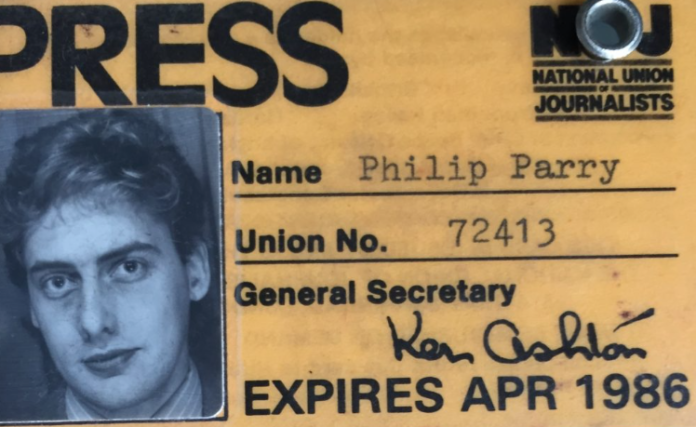- ‘Ch-ch-changes’ copyright D. Bowie - 2nd February 2026
- I predict another riot… - 30th January 2026
- Force for change - 29th January 2026

The key role of the kind of investigative journalism practised by our Editor, Welshman Phil Parry, is now put centre stage by new revelations about Vladimir Putin which have been brought out by this type of reporter.
It has emerged that while Putin espouses traditional ‘family values’, he had a string of mistresses (with one of which it’s reported he parented a love child whom he does not acknowledge), links to a strip club, and a divorced ex-wife who came to the end of her tether over his infidelities.
Truth will out, and people like me help it.
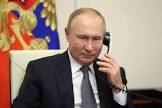
Our targets grow uncomfortable (i get spuriously threatened with legal action all of the time!), and the latest information concerns the Russian autocrat Vladimir Putin.
He likes to portray himself as a defender of traditional ‘family values’, but the truth is rather different.
Shortly before Putin became Russia’s president in 2000 it is claimed that he began an affair with Svetlana Krivonogikh a 20 year old former cleaner who may have been introduced to him by his body guards.

Ms Krivonogikh went from relative poverty to owning a ski resort, and in 2003 it is said that she gave birth to a daughter called Elizaveta (Luiza) who Mr Putin has never admitted is his.
When Putin went into politics, the former KGB officer held meetings in a strip club called Luna.
Another alleged mistress was 17 year old Alisa Karcheva who had posed in lingerie for a 2010 calendar, and gained entry to the Moscow State Institute of International Relations as well as acquiring a flat in Moscow.
All of this would have remained secret were it not for the sterling work of Roman Badmin and Mikhail Rubin – two Editors at Proekt Media an investigative news website which has been banned by the Russian authorities – in a new book called The Tsar Himself How Vladimir Putin Deceived Us All.

None of these details are the stuff of traditional ‘family values’, which is why Putin does not like this sort of news coming out (and is, of course, denied), but they are not the only worrying things about him.
For example an artist and activist received a long prison sentence for replacing price tags in a St Petersburg supermarket with anti-war messages.
Alexandra Skochilenko, was jailed for seven years for putting up messages such as: “My great-grandfather did not fight in ww2 so that Russia could become a fascist state and attack Ukraine”.
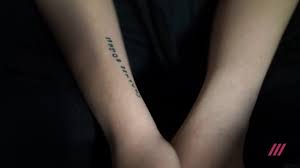
All of this follows other disturbing events – which would have been funny were they not true.
Journalist Yulia Starostina was fined over half a million pounds (50,000 roubles) after she gave an interview to Dozhd, in which she described her anti-war tattoo. During the interview she explained it by talking about how she felt responsible for the war in Ukraine, and believed it was necessary to stop it.

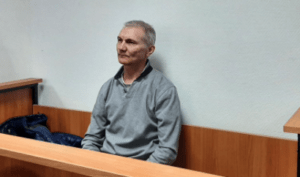
She is not alone as an example of outrageous behaviour by the authorities either, and more absurd (as well as awful) instances have come to light in Russia.
Alexei Moskalyov was sentenced to two years in a penal colony for discrediting the country’s army over his 13 year old daughter’s anti-war artwork. Social media posts by him have emerged which they didn’t like as well.

A Moscow baker who made anti-war cakes was fined for ‘discrediting’ the Russian army. Anastasia Chernysheva began sharing images of her cakes on social media soon after Russia’s invasion of Ukraine.
Some of the cakes were decorated in the yellow and blue of the Ukrainian flag, while others had anti-war slogans or symbols. The baker was detained by officers, the human rights monitoring website OVD-Info has reported, citing her lawyer.
Revelations of torture by Russian forces following the invasion of Ukraine (many of them made by journalists), have only made the issue of the crackdown more pertinent.
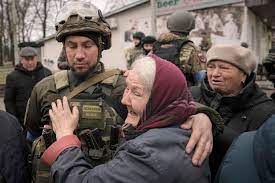
Civilian and military detainees are treated equally badly, and according to a UN report last month, of 216 released civilians it interviewed, 92 per cent gave accounts of abuse. The methods included beatings, electric shocks, stress positions, ritual humiliation and rape. For soldiers the percentage is even higher.
There are particularly severe ‘welcome beatings’ each time a prisoner is transferred to a new facility. It’s been reported that one guard would make a practice of beating prisoners’ hands with a mallet.
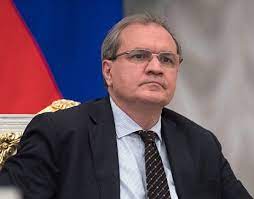
The number of these appalling instances is likely to grow, too, for journalists as well as ordinary citizens and soldiers.
Valery Fadeyev the chairman of Russia’s ‘Human Rights’ Council, has proposed to define the concept of “Russophobia” at legislative level and called for a law to deter it. He declared: “Our task today is to try to formulate legally what Russophobia is and what articles of the criminal code can be used under this qualification, and if there is no such article, then an additional article must be introduced”.

At least 500 journalists have been forced to flee Russia since its invasion of Ukraine, according to Proekt Media, and are reporting the truth about the war from OUTSIDE the country.
They call this “offshore journalism”, and the journalists are scattered across Europe, in cities such as Riga, Tbilisi, Vilnius, Berlin and Amsterdam, where they manage to reach a large audience, with most of them under the age of 40. “Our job today is to survive and not let our readers suffocate”, said Ivan Kolpakov, the editor-in-chief of Meduza, a news website.
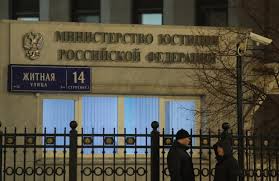
Meduza has reported on the massacre of Ukrainian civilians in Bucha, and the extraordinary number of convicts that joined the mercenary group Wagner.
Mediazona, an online outlet founded by two members of ‘Pussy Riot’, a punk band which staged protest concerts, is trying to count the true number of Russian casualties. In 2012, three members of the band were all convicted of “hooliganism motivated by religious hatred” and each sentenced to two years’ imprisonment.
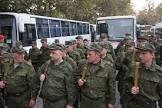
Mediazona has found an ingenious way to work out how many Russians have been conscripted, by analysing open-source data on the unusually high number of marriages since mobilisation began. (Draftees are allowed to register their marriage on the same day as they are enlisted, and often do, since they don’t know when, or if, they will see their partners again). Mediazona estimated that half a million people were drafted in the first round of conscription—far more than the 300,000 the Kremlin said would be.
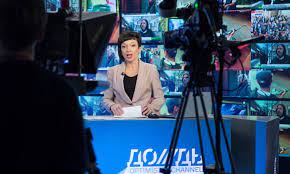
tv Rain, Russia’s best known independent television channel, went dark eight days after the war started. Echo of Moscow, a radio station with five million listeners, became silent on the same day. Soon after that, Novaya Gazeta, the most outspoken critical newspaper in Russia, stopped printing.
Alexei Venediktov, the editor of Echo, and Dmitry Muratov, the Nobel prize-winning editor of Novaya Gazeta, stayed in Russia while some of their former colleagues set up operations offshore.

tv Rain is back on air, now based in Latvia and broadcasting via YouTube to 20 million viewers a month (although it has been ordered to shut its terrestrial output by the media regulator), most of them inside Russia. Echo is in Berlin, streaming news and talk-shows live via a new smartphone app, which the Kremlin tried but failed to block.
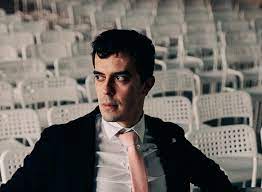
Roman Dobrokhotov, who runs The Insider said: “There is plenty of demand for investigative journalism, there are people who know how to do it and there is no shortage of subjects to investigate”.
Officials never approved of the sort of investigative reporting such as I undertake, and now it has built great walls around the truth, closing some 260 publications. With Twitter/X, Facebook and Instagram blocked, they are accessible today only via VPN proxies.

As I have shown, laws ban discrediting the Russian army (punishable by fines as was suffered by Ms Starostina, or jail as Mr Moskalyov endured), or publishing ‘fake news’ (punishable by prison) about the army.
Meanwhile, a new documentary film by independent journalist Jake Hanrahan has shed light on the “partisan” fight against the Kremlin. He has produced a YouTube film, which interviewed two members of an “anarcho-communist” group known as BOAK, whose aims were vague and unrealistic before the invasion of Ukraine.
Fires that have broken out across Russia have been blamed on Ukrainian saboteurs and even Western intelligence operatives, according to Radio Free Europe, but Mr Hanrahan suggests a “large-scale, active resistance inside Russia” is now active.
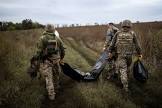
A list criminalises any discussion of over 60 sensitive subjects, from the numbers of Russians killed in action to the country’s mobilisation campaign, and anyone who wants an alternative view has to search hard for it. It is difficult to find a VPN that the security services haven’t already blocked.
You certainly won’t find any news about Putin’s love child from official outlets.
But thank the brave journalists, both inside and outside Russia, because the truth will out…

The memories of Phil’s extraordinary decades long award-winning career in journalism (when he could operate in a free environment unlike in Putin’s Russia) as he was gripped by the rare and incurable, neurological disabling condition Hereditary Spastic Paraplegia (HSP), have been released in a major book ‘A Good Story’. Order it now.
Tomorrow – how a huge final push is being made to prepare for the FIFA World Cup next year, but even before it begins, major concerns are being raised.







